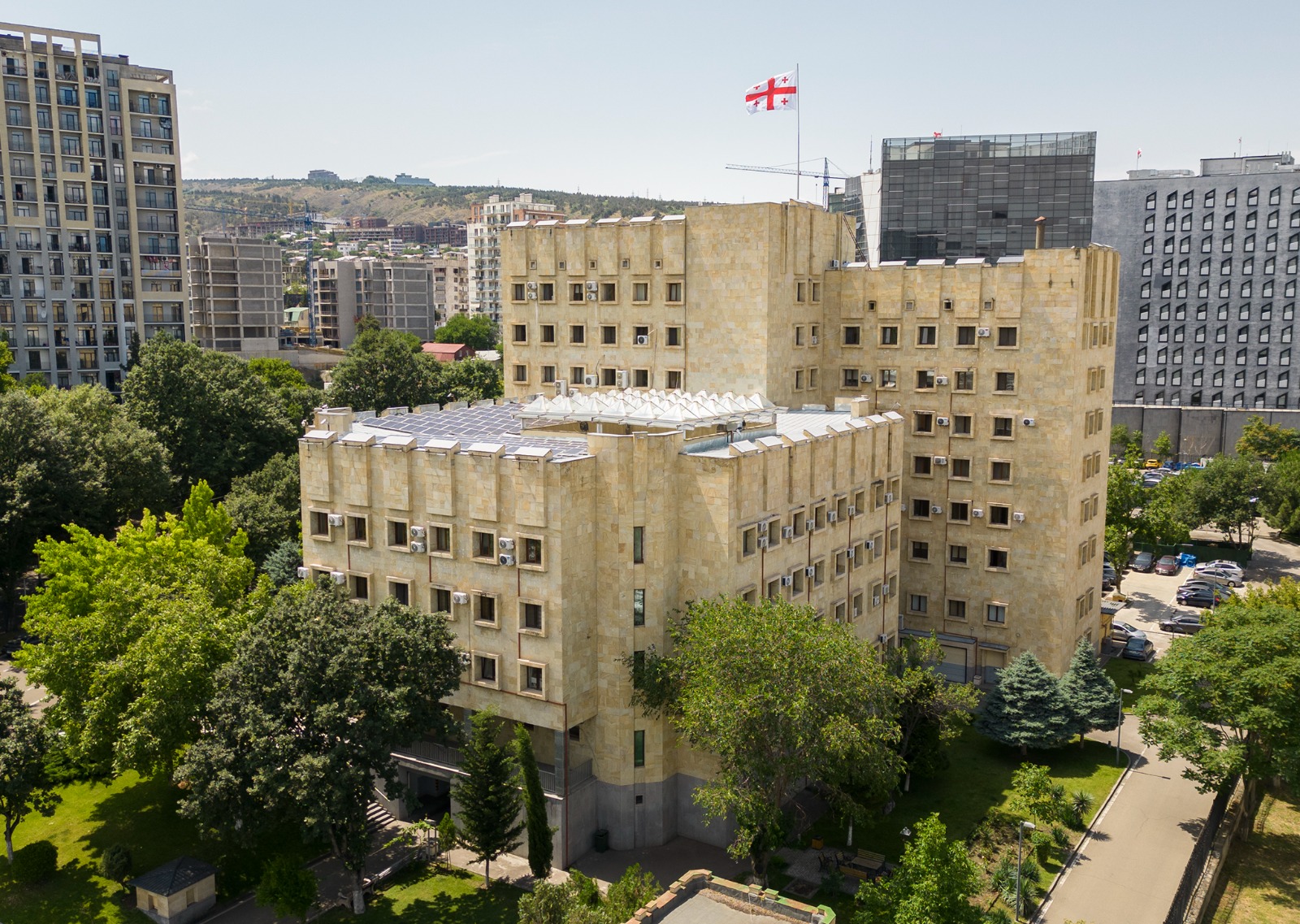Georgian authorities have frozen the bank accounts of seven civil society organizations as part of what the Prosecutor’s Office said is an ongoing “sabotage” investigation, claiming the groups’ funds were used to “equip with special means rally participants who committed violent acts against law enforcement” during the 2024 protests.
The organizations whose accounts were frozen include the Civil Society Foundation (CSF), the International Society for Fair Elections and Democracy (ISFED), the Institute for Development of Freedom of Information (IDFI), Democracy Defenders, Georgian Democracy Initiative (GDI), Sapari, and the Social Justice Center (SJC).
Their “targeted funds were used to purchase equipment such as special gas-helmets, protective glasses, medical masks, face-covering masks, pepper spray, and other means, which rally participants actively used during violent confrontations with police,” the Prosecutor’s Office said in an August 27 statement.
The move comes amid a separate inspection request by the Anti-Corruption Bureau of several of the groups under Georgian Dream’s Foreign Agents Registration Act (FARA), as the Bureau alleged their “political activities” and warned of criminal liability for failing to register. In June, the Bureau, led by GD loyalist Razhden Kuprashvili, also sought to inspect the groups under three other laws, demanding extensive information, including sensitive data about their beneficiaries. The CSOs refused both inspection requests.
The Prosecutor’s Office said the ongoing investigation, under which the Tbilisi City Court granted its request to freeze bank accounts, involves several criminal charges, including “sabotage, attempted sabotage under aggravated circumstances, assisting a foreign organization or an organization under foreign influence in hostile activities, and financing actions against Georgia’s constitutional order and national security.”
“The heads of these organizations openly called on society toward disobedience and resistance,” the Prosecutor’s Office said, adding that their organizational and financial activities were “fully directed at providing financial patronage for individuals involved in violent acts and their family members.”
“It involved paying fines, covering legal defense costs, and addressing other personal and organizational matters,” the statement continued. “The purpose of these actions was, on the one hand, to encourage those engaged in unlawful acts and, on the other, to shield them. Ultimately, the coordinated activities sought to weaken law enforcement agencies and disrupt their normal functioning.”
In March, authorities froze the bank accounts of funds that supported protesters, mainly by covering hefty fines for blocking roads. The Prosecutor’s Office then said the freezing of their bank accounts was part of a similar sabotage-related investigation.
NGOs React
Saba Brachveli, a lawyer at the Civil Society Foundation, criticized the move and the Prosecutor’s Office statement in a Facebook post, writing: “In other words, the Prosecutor’s Office labeled as a crime helping provide legal defense for another person (especially someone unjustly detained) supporting their families, giving legal consultations and generally encouraging prisoners, and for this it froze the assets of civil society organizations.”
“We are those people who never leave others alone in an ordeal,” Brachveli added.
Tamta Mikeladze, director of the Social Justice Center, said the freezing of accounts “means organizations’ institutional and financial paralysis.”
“Georgian Dream wants us to no longer be able to support our citizens and social groups, to stop exposing their crimes and injustice, and to end building solidarity within society,” she wrote on Facebook.
She also noted the timing of the decision, coming days before the European Commission’s deadline for the Georgian government to meet conditions to retain visa-free travel, calling it “an escalation by Georgian Dream in relations with Brussels and the complete sabotage of this process.”
Calling the prosecutors’ allegation “entirely baseless and defamatory,” Sapari, a women’s rights group, pledged to continue its advocacy work voluntarily following the account freeze.
“To women and children who are victims of violence, we say: reach out to us if you need support in defending your rights, your health, or your life. We will continue to assist you voluntarily for as long as we are able, because Sapari is a team united around the principles of equality and human dignity — a community of freedom-loving, patriotic citizens,” Sapari said in its August 27 statement.
In a joint statement released later in the day, the affected NGOs vowed “not to cease work.”
“Despite [account] freeze, repression or threats, we will stubbornly continue to work as long as Georgian people are daily fighting for truth and justice,” the NGOs said. “We will fight against authoritarian rules and Russian laws and use every legal mechanism not to allow those opposing the country’s constitutionally enshrined democratic and European path to achieve their goal.”
Note: This news article was updated on August 27 at 18:50 p.m. to include comments by NGO representatives.
Also Read:
This post is also available in: ქართული
